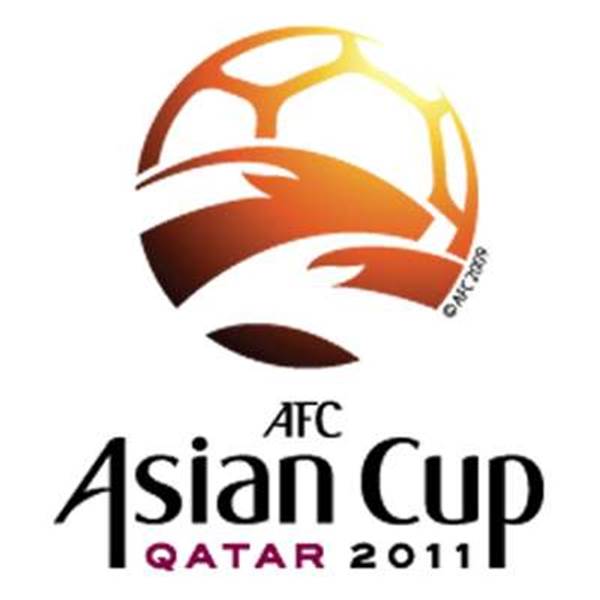AUSTRALIA'S roller-coaster Asian Cup ride has propelled them to within touching distance of a historic first-ever major international trophy ahead of their clash with Japan on Sunday morning.
Prior to the semi-final, this tournament has been a grind for the Australian team. After a predictable win over India in the opener, they battled for a creditable 1-1 draw with South Korea and then held on, some may say luckily, for the 1-0 result in the third game against Bahrain which got them through as group winners.
The quarter-final against Iraq was a tense affair, with Australia needing all but two of the 120 minutes to get on top and avoid a penalty shootout. A nation steeled itself for a similar white-knuckle ride against Uzbekistan in the semis, but instead the Socceroos put on a clinic, smashing six goals against the hapless Central Asians, whose organisation and discipline completely fell apart in the second half.
Australia's recent World Cup experience served them well in that match and Holger Osieck produced a tactical masterstroke, opting to forsake possession in order to create space for his strikers to hit on the counter attack. Uzbekistan fell into the trap, pushing up in order to try and create opportunities but sacrificing defence in the process.
Matt McKay, the surprise packet of the tournament, took particular joy in picking his way through the Uzbek defence, both with passing and on foot, and he had a hand in three of the goals, including the all-important opener, when setting up Harry Kewell, who finished well for his third of the tournament.
But there is no time to reflect on that dominant performance with Japan offering a very different challenge. It's a challenge Osieck, who spent many years coaching in the country, should be very familiar with, but that does not make it any easier.
Japan are technically superior to any team Australia have met so far in the tournament, moving the ball well through the midfield and creating chances with clever inter-passing. If Australia adopt the same tactical plan they did against Uzbekistan, they could well find themselves passed out of the game.
Perhaps there is a slight weakness in their defence, with seven goals conceded so far in the tournament and just one clean sheet. The Blue Samurai's two key defenders of recent years, Marcus Tulio Tanaka and Yuji Nakazawa, have both failed to make it to Qatar through injury leaving Daiki Iwamasa and Maya Yoshida to fill in.
Yoshida missed the semi-final through suspension, but should return in this match in place of Yasuyuki Konno, who deputised in the match against South Korea, which Japan won on penalties.
The major blow for Japan is a foot injury to key attacker Shinji Kagawa, which will keep him out. He scored twice in the dramatic 3-2 win over Qatar in the quarter-finals and Japanese coach Alberto Zaccheroni will be hard-pressed to find a suitable replacement.
Osieck has a somewhat similar dilemma with Tim Cahill still struggling with a thigh injury, but the Everton man has said it will take a train to stop him taking the field against Japan, who he enjoys a prolific scoring record against, including two the last time these two teams met in Melbourne in 2009.
The German coach is likely to opt to take a risk with him and if things don't work out, he has other options he can call on, including Melbourne Victory's Robbie Kruse, who had a great 30 minutes against Uzbekistan.
Cahill and Kewell were both rested late in that game and that respite, when compared to the epic penalty shootout Japan endured, could prove crucial.
It looks like a match where details like this could prove the difference, given there is little between these two proud footballing nations. The teams boast two excellent goalkeepers, either of whom will be a worthy hero should this match go to penalties, which seems a distinct possibility.
At that point, Japan's previous experience from the spot may prove useful, but prior to 120 minutes you feel Australia have the slightest of advantages and so long as they take their opportunities and have an ounce of luck, we could be celebrating an Asian Cup win on Sunday.
Date: Saturday January 29
Kick-off: 6:00pm local (2:00am Sunday AEDT)
Venue: Khalifa Stadium, Doha
Head-to-head
Played 18: Wins: Australia 7, Japan, 5, Draws: 6,
Previous Meeting
Australia 2, Japan 1, Melbourne, June 2009
Past five matches:
Australia:
Uzbekistan 0, Australia 6, Doha, January 2011
Australia 1, Iraq 1 (aet), Doha, January 2011
Australia 1, Bahrain 0, Doha January. 2011
Australia 1, Korea Republic 1, Doha, January 2011
Australia 4, India 0, Doha, January 2011
Japan
South Korea 2, Japan 2 (aet), (0-3pso), Doha, January 2011
Qatar 2, Japan 3, Doha, January 2011
Saudi Arabia 0, Japan 5, Doha, January 2011
Syria 1, Japan 2, Doha, January 2011
Japan 1, Jordan 1, Doha, January 2011
Related Articles

Socceroos midfielder embraces move to England

Cardiff City snap up sought-after Socceroos starlet













